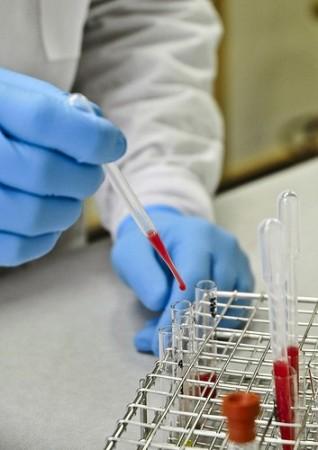
A new blood test can help diagnose blood poisoning or sepsis, faster than the tests currently available, a new study says.
The new test developed by a team of researchers from the King's College in London, works by identifying a group of biomarkers for sepsis in the blood. Professor Graham Lord, who led the study, said that the new test is capable of giving an accurate result within two hours, unlike the tests that take nearly 48 hours currently.
Sepsis is a deadly condition caused when the immune system responds strongly to an infection. The chemicals released to the blood, meant to fight the infection, prompt inflammation all over the body, further damaging and causing multiple organ failure (lungs, kidney or liver). The condition is found more common among children, infants or aged and people with weak immunity or chronic illness (cancer, diabetes, kidney or liver disease). Fever, skin rashes, warm skin, breathing problems, abdominal pain, low platelet count, abnormal heart beat and confusion are some symptoms of the condition that can even lead to death. According to Sepsis Alliance.org, the condition claims millions of life across the globe.
For the study, the researchers included people with sepsis, systemic inflammatory response Syndrome and healthy patients. They tested blood samples collected from the three groups and measured the level of microRNAs that play a major role in the disease's processes. Certain types of microRNAs were found more active in sepsis patients. Effectiveness of the test was later re-confirmed on another group of Swedish patients with severe sepsis. The test is 86 percent accurate, the researchers said.
"This is an extremely exciting development which has the potential to completely transform the management of this severe disease and save thousands of lives worldwide every year," Lord, Director of the NIHR Biomedical Research Centre at Guy's and St Thomas' NHS Foundation Trust and King's College London, said in a news release.
The findings have been published in the journal PLOS ONE.















